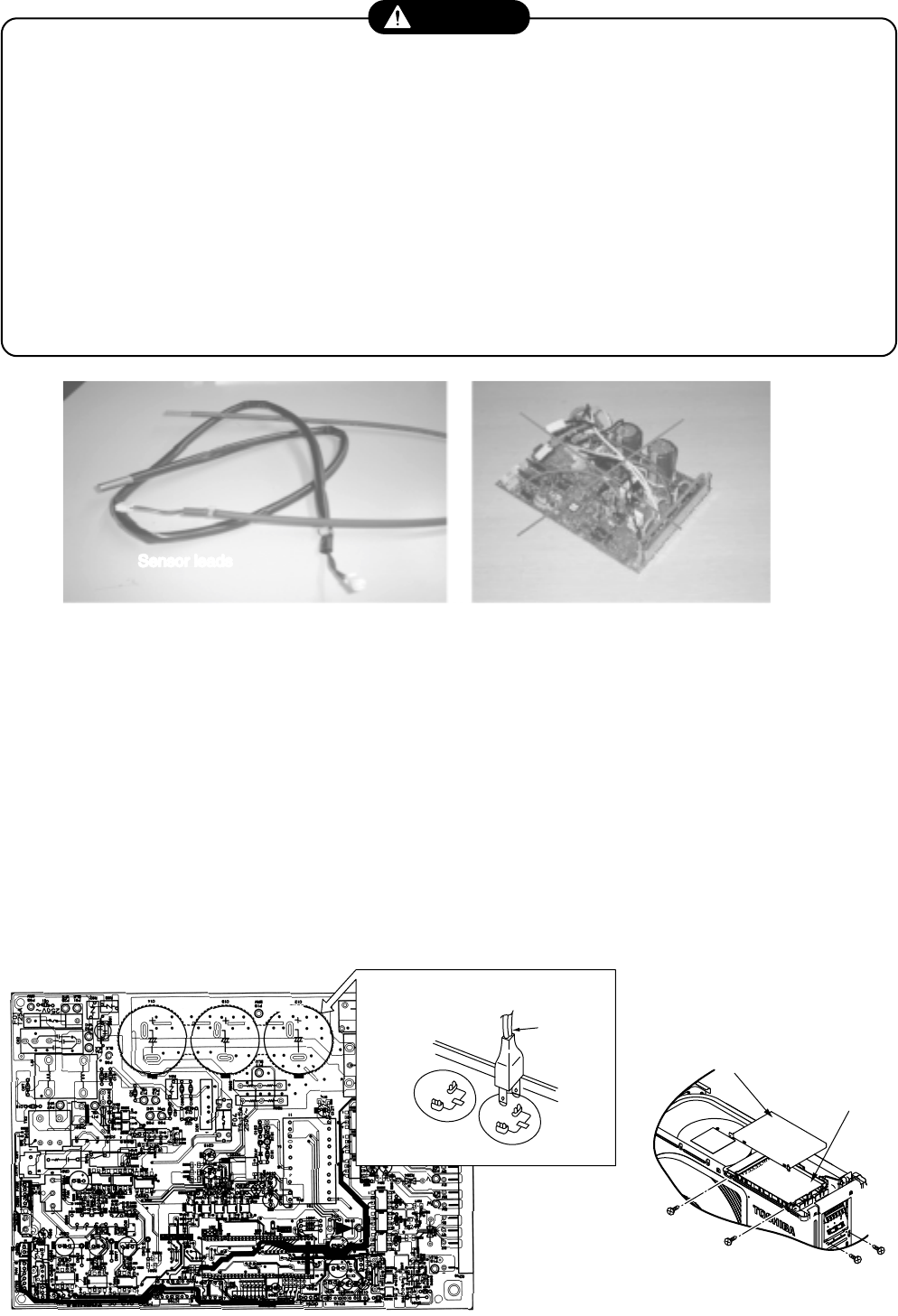
– 61 –
CAUTION
A high voltage (equivalent to the supply voltage) is also energized to ground through the
sensors, PMV and other low-voltage circuits. The sensor leads and other wires are covered
with insulated tubes for protection. Nevertheless, care must be taken to ensure that these
wires are not pinched.
Take sufficient care to avoid directly touching any of the circuit parts without first turning off
the power.
At times such as when the circuit board is to be replaced, place the circuit board assembly in
a vertical position.
Laying the board flat on an electrically conductive object (such as the top panel of the air conditioner's
outdoor unit) while a charge is still retained by the electrolytic capacitors of the inverter's main circuit may
cause short-circuiting between the electrolytic capacitors and secondary circuit components and result in
damage to the components.
Sensor leads
Do NOT lay the circuit board assembly flat.
K Precautions when inspecting the control section of the outdoor unit
NOTE :
A large-capacity electrolytic capacitor is used in the outdoor unit controller (inverter). Therefore, if the power
supply is turned off, charge (charging voltage DC280 to 380V) remains and discharging takes a lot of time.
After turning off the power source, if touching the charging section before discharging, an electrical shock may
be caused. Discharge the electrolytic capacitor completely by using soldering iron, etc.
< Discharging method >
1. Remove the inverter cover (plating) by opening four mounting claws.
2. As shown below, connect the discharge resistance (approx. 100Ω40W) or plug of the soldering iron to
voltage between + – terminals of the C14 (“CAUTION HIGH VOLTAGE” is indicated.) electrolytic capacitor
(500µF/400V) on P.C. board, and then perform discharging.
Fig. 11-2
Discharging position
(Discharging period
10 seconds or more)
Plug of
soldering iron
Inverter cover
P. C. board
(Soldered surface)
Fig. 11-3


















